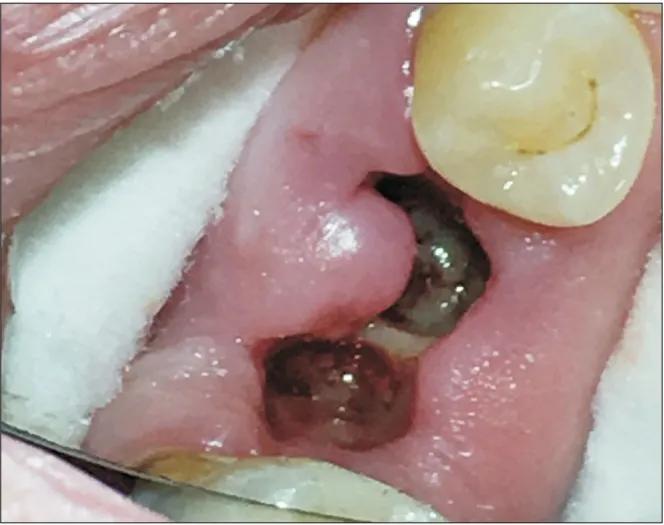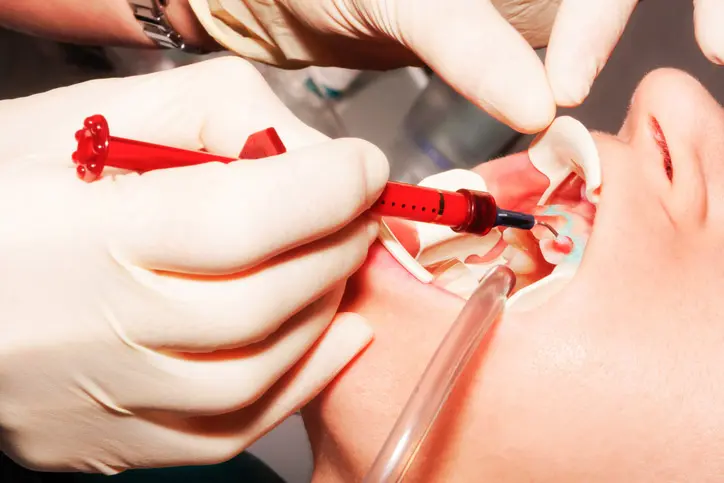Smoking after tooth extraction is not recommended and can have negative effects on the healing process. When a tooth is removed, a blood clot forms at the extraction site to protect the underlying bone and nerves and promote proper healing. Smoking can interfere with this process and increase the risk of complications, such as dry socket.
What is Dry Socket?
Dry socket is a painful condition that can occur after tooth extraction when the blood clot at the extraction site either does not form, comes out, or dissolves before the wound has fully healed. This exposes the underlying bone and nerves, leading to intense pain, swelling, and potential infection.
Symptoms of Dry Socket
The symptoms of dry socket may include:
- Severe pain within a few days after tooth extraction
- Loss of part or all of the blood clot at the extraction site
- Bone visible in the socket
- Pain that spreads to the ear, eye, temple, or neck on the same side as the extraction
- Bad breath or foul odor
- Bad taste in the mouth
If you experience any of these symptoms, it is important to contact your dentist or oral surgeon immediately for appropriate treatment.
Causes of Dry Socket
The exact cause of dry socket is still being studied, but researchers believe that certain factors may increase the risk, including:
- Bacteria entering the extraction site
- Injury during tooth removal, particularly with impacted wisdom teeth
Risk Factors
Several factors can increase the risk of developing dry socket, including:

- Smoking and tobacco use: Chemicals in cigarettes or other forms of tobacco can interfere with healing and increase the chances of the blood clot dislodging prematurely.
- Birth control pills: High estrogen levels from birth control pills may affect healing and raise the risk of dry socket.
- Improper at-home care: Not following post-extraction care instructions or neglecting oral hygiene can increase the risk of dry socket.
- Tooth or gum infection: Existing or previous infections in the extraction area can increase the chances of developing dry socket.
Complications and Prevention
A dry socket can be painful, but it rarely leads to serious complications. However, healing may be delayed, and the pain may last longer than usual after tooth extraction. There is also a risk of infection in the socket.
Prevention is key to avoiding dry socket. Before surgery, it is important to find a dentist or oral surgeon experienced in tooth removal. Good oral care, including brushing and flossing, helps maintain oral hygiene and reduce the risk of infection. If you smoke or use tobacco products, quitting before the extraction can significantly reduce the risk of dry socket. It is also essential to inform your dentist or oral surgeon about any medications or supplements you are taking that could affect blood clotting.

After tooth extraction, following the post-operative instructions provided by your dentist or oral surgeon is crucial for proper healing. This may include using a dressing with medicine, using antibacterial mouthwashes or gels, and taking oral antibiotics if necessary.
Smoking after tooth extraction can have detrimental effects on the healing process and increase the risk of complications, such as dry socket. It is important to follow the recommendations of your dentist or oral surgeon, practice good oral hygiene, and avoid smoking or using tobacco products to ensure a smooth and successful recovery.
If you want to know other articles similar to Smoking after tooth extraction: risks and effects you can visit the Dental care category.

